Patricia Shafer, August 25, 2017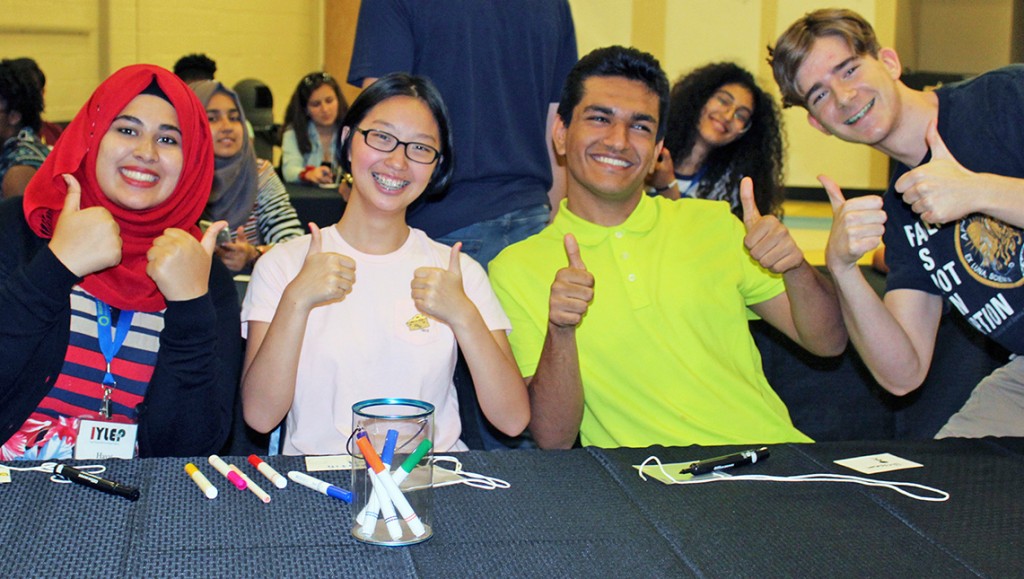
At NewGen Peacebuilders, our mission is: “to make learning to be a peacebuilder a rite of passage (for everyone).” Typically, this involves facilitating intense, locally-specific training and peace project mentoring for high school and university students in multiple states and countries.
But we didn’t hesitate when invited to host a customized session that brought together Iraqi and US high school students at International House in Charlotte, North Carolina. The Iraqi students were visiting through the Iraqi Young Leaders Exchange Program (IYLEP) sponsored by the US Embassy in Baghdad and US State Department, and administered by World Learning. The US students are outstanding NewGen Peacebuilders alumni certified during a Spring 2017 cohort in Charlotte made possible with funds from District 7680 of Rotary International.
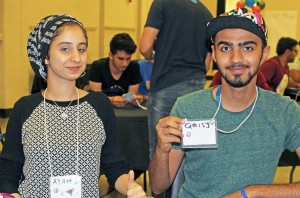 Appreciation & Role Models
Appreciation & Role Models
Imagine 25 Iraqi and US high school students sharing ideas about citizen diplomacy and peacebuilding. Before walking in, they knew nothing about one another. To break the ice, students shared favorite songs; practiced greeting each other in English, Arabic and Kurdish; and listed people they admire as peace role models. Rev. Martin Luther King, Jr., resonates across borders and cultures.
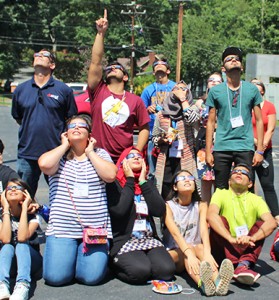 Bonding Over an Eclipse
Bonding Over an Eclipse
This NewGen Peacebuilders session occurred on August 21, a day highly anticipated for the “Great American Eclipse.” We leveraged the eclipse as a shoulder-to-shoulder, elbow-to-elbow opportunity to build bonds. Students learned that a famous eclipse occurred in 763 BCE during the Assyrian Empire, what is now modern-day Iraq. Some records indicate that insurrection in the city of Ashur was interpreted as a consequence of the 5-minute total eclipse. Notes from Greek historian Herodotus record that a solar eclipse in 585 BCE prompted an end to war between the Lydians and Medes who saw dark skies as a sign to make peace.
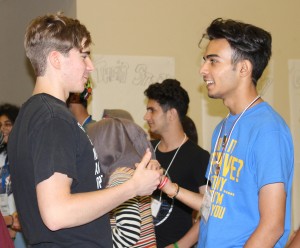 Their Story, Our Story
Their Story, Our Story
A multi-step exercise involved shifting from perceptions of one another (“they”) to a unified story of how to shape peace projects at home in both countries (“we”). First, Iraqi and US students separately listed notions of “the other” that are reinforced by the media. Then, in pairs, each Iraqi and US student expressed who he/she REALLY is and practiced Active Listening. Last, Iraqi and US students worked in groups to imagine solutions to three common problems: 1) educational barriers; 2) racial and ethnic conflicts; and 3) political violence.
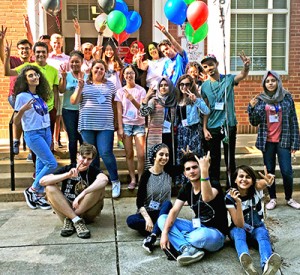 What Next – Projects
What Next – Projects
Good talk should lead to action. The IYLEP program requires Iraqi students to pursue change projects when they return home. Many of the US students called the session “one of the most exciting things we’ve ever done.” Several said they are inspired to build on peace projects they technically completed earlier in 2017. One project involves being cross-cultural mentors to refugees and immigrants. Another project focuses on training voters how to be open to differing political viewpoints.
Want to know more about NewGen Peacebuilders? Click here to watch a short video.
